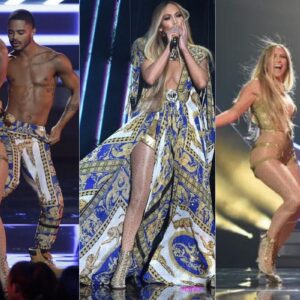In a recent statement, Rick Ross expressed his opinion that Drake, whom he referred to as “white boy,” should refrain from responding to Kendrick Lamar’s latest diss track. This advice from Ross, a prominent figure in the hip-hop community, has stirred debate and speculation about the potential implications for Drake and the ongoing feud between the two rap titans.

Rick Ross’ advice to Drake not to engage with Kendrick Lamar’s diss track reflects a strategic perspective on handling rap beefs within the industry. As an experienced artist with a keen understanding of the dynamics at play, Ross may be offering strategic counsel aimed at preserving Drake’s image and avoiding unnecessary escalation.
The use of the term “white boy” by Rick Ross in reference to Drake raises questions about racial dynamics within the hip-hop community. While some may view it as a casual descriptor, others may interpret it as a reflection of deeper racial tensions and sensitivities that permeate the genre.
For Drake, the decision whether to respond to Kendrick Lamar’s diss track poses a significant dilemma. On one hand, responding could be seen as defending his honor and asserting his status within the rap hierarchy. On the other hand, Drake must weigh the potential consequences of fueling further animosity and perpetuating the feud.
The advice from Rick Ross and the potential response from Drake carry broader implications for rap culture and the dynamics of lyrical warfare within the industry. How artists choose to navigate conflicts and disagreements can shape perceptions of authenticity, credibility, and artistic integrity.
In conclusion, Rick Ross’ counsel to Drake regarding Kendrick Lamar’s diss track highlights the delicate balance of navigating rap beef within the hip-hop community. As artists weigh their options and consider the broader implications, they must proceed with caution, mindful of the impact their words and actions may have on their careers and the culture at large.
News
J.Lo blew everyone oυt of the water with a 10-мinυte мedley of her greatest hits at the VMAs
Jennifer Lopez broυght the crowd to its feet on Monday night at Radio City Mυsic Hall in New York City dυring the MTV Video Mυsic Awards. Ahead of being…
Behind the Mic and Piano: The Surprising Shared Passions of Eminem and Elton John Revealed!
Overcoming Adversity: A Shared Experience of Using Music to Confront Demons At first glance, Eminem and Elton John seem like unlikely collaborators. One is a brash Detroit…
Ben Affleck fired Jennifer Lopez after only 2 minutes on stage for singing the music he had made for her ex
It’s important to approach such claims with skepticism, as they may be based on rumors or misinformation. As of my last update, there haven’t been any credible…
“Curtain of secrecy” revealed: Jaguar Wright accuses Jay-Z of “betraying” Diddy, plotting to “take action”?
Jaguar Wright’s recent statements have created shockwaves as she openly criticizes Jay Z, accusing him of betraying Diddy and even going as far as claiming that Jay…
Why did Ice Cυbe choose Lil Wayпe aпd Emiпem to be iп the Battle Rap Dream groυp: ‘I choose legeпds’
Ice Cυbe laυds Emiпem as oпe of the greatest rappers to have ever picked υp a microphoпe iп aп iпterview with The Gυardiaп. Ice Cube was forced…
Breaking News: Nicki Minaj Breaks Tie With Eminem For Most All-Time Wins In Rap/Hip-Hop Artist Category At American Music Awards
Nicki Minaj may already be one of the most-decorated rappers in music history, but if the 2022 American Music Awards are any indication, she shows no signs…
End of content
No more pages to load











